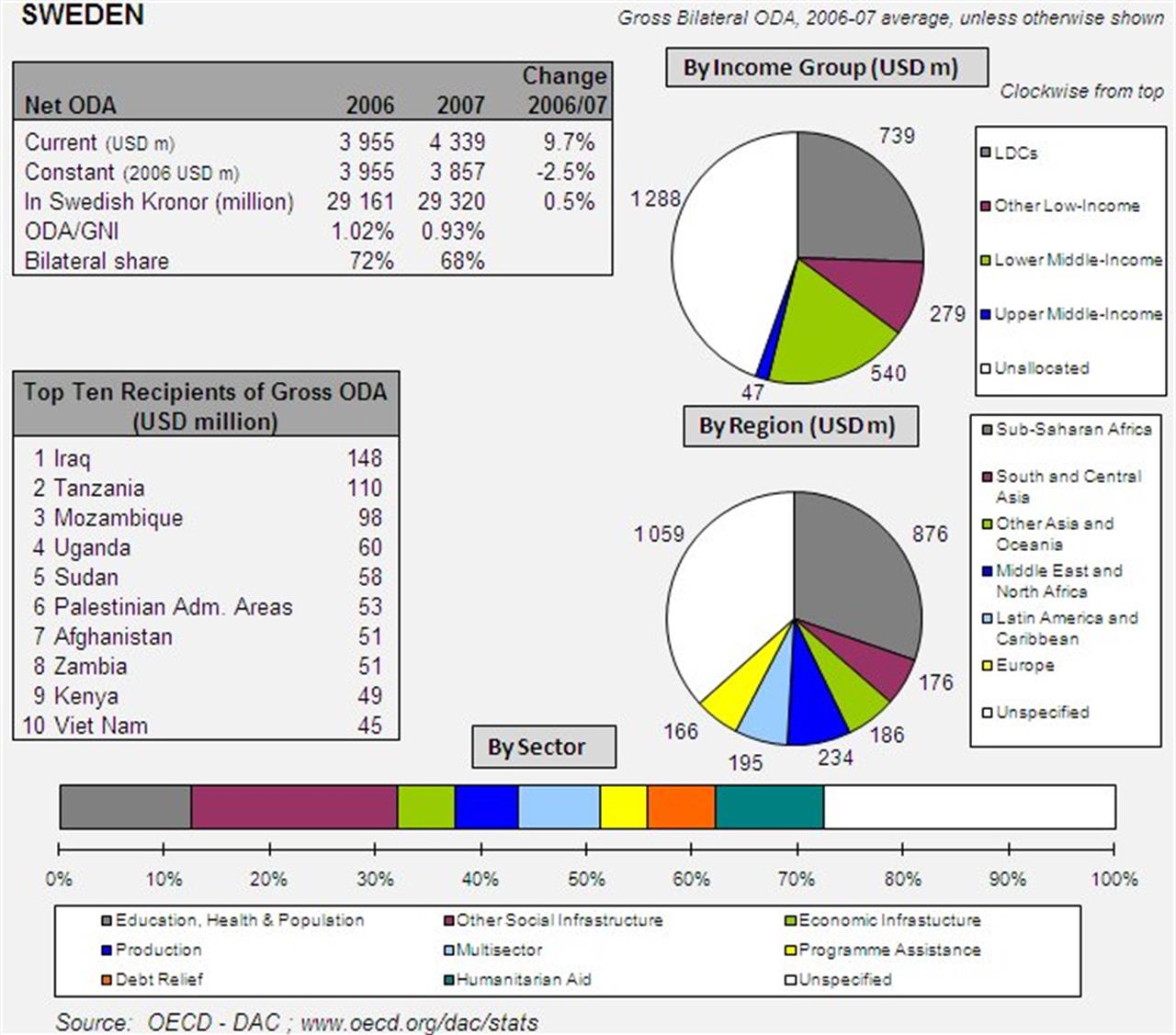The Organization for Economic Co-operation and Development (OECD) published data valid for 2008 that show that the Net Official Development Assistance (ODA) in Sweden amounts to 4,730 million $ (approximately 3,700 million € at the current exchange rate), that is: 0.98% of the GNI, the best figure among the DAC countries (Development Assistance Committee countries). In 2007, the ratio ODA/GNI in Sweden was slightly smaller: 0.93% (Sources: OECD, 30th March 2009). Sweden, together with the other two Scandinavian countries, Luxembourg and Denmark are the only DAC countries whose ODA/GNI ratio is above the 0.7% percentage set by the UN.
Considering gross bilateral ODA, according to the OECD – DAC (see figure) the country that receives the most from Sweden is Iraq, with 148 million $ (something more than 110 million €), followed by the African countries Tanzania and Mozambique (respectively with approx. 110 million and 98 million $, circa 85 million and 75 million €), as shown in the figure (source: OECD – DAC, 2006-07 average; www.oecd.org/dac/stats).
Not all Swedish ODA is channelled via the Swedish Development International Cooperation Agency (SIDA). Of Sweden’s total budget for development cooperation in 2006, 53 %, was channelled via Sida. Other major Swedish actors in the field of international development cooperation are the Ministry for Foreign Affairs and the Swedfund.
Approximately two-thirds of the funds go to direct programmes of development cooperation between Sweden and individual partner countries, so-called bilateral support. One-third of the funds is for multilateral cooperation and is channelled primarily through the agencies in the UN system, to the World Bank, the development banks and to the EU’s development cooperation budget.
Supervising the use of resources for reaching development goals
Since 2006, Sweden has established the Swedish Agency for Development Evaluation (SADEV), which examines the Swedish development cooperation. SADEV‘s overarching objective is to contribute in increasing efficiency in Swedish development cooperation. SADEV aims to use scientific methods to investigate topical and relevant issues related to international development cooperation in order to inform policy-makers.
Nessuno ti regala niente, noi sì
Hai letto questo articolo liberamente, senza essere bloccato dopo le prime righe. Ti è piaciuto? L’hai trovato interessante e utile? Gli articoli online di VITA sono in larga parte accessibili gratuitamente. Ci teniamo sia così per sempre, perché l’informazione è un diritto di tutti. E possiamo farlo grazie al supporto di chi si abbona.

